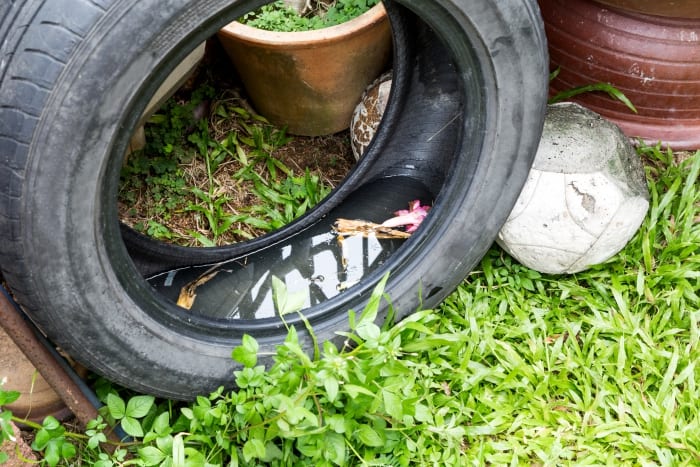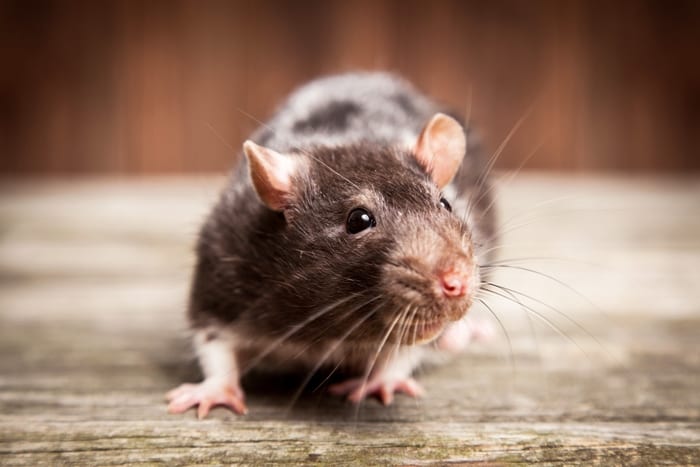
Barbadians are being asked to be more vigilant in keeping their surroundings clean to reduce the population of vectors such as rats and mosquitoes. Senior Environmental Health Officer, Dale Holligan, made this plea recently as she lamented that some householders had become negligent in cleaning their properties.
While acknowledging that the weekly fogging schedule had been put on pause during the height of the COVID-19 pandemic due to respiratory concerns, Ms. Holligan said citizens still had a responsibility to do their part to prevent an increase in vector-borne illnesses.
She added that the Ministry of Health and Wellness’ fogging programme still continued on a smaller scale, as officers respond to areas where they receive complaints for mosquitoes. However, the Senior Environmental Health Officer reminded the public that fogging only killed adult mosquitoes.
“Since the weekly fogging stopped, we’ve had an increase in mosquitoes. People are more negligent; we are finding a lot more breeding sites that were not normally found before. So yes, you would see an increase in the mosquito population but that does not mean it is a direct result from the cessation of fogging; human practices are involved.
“The onus is on householders, generally, to do inspections on their homes by looking for stagnant water. We have also been monitoring the wetlands where you can have mosquito proliferation. We have even encountered new areas that would not normally have water that we’re finding with water.
So, we are doing treatment; we’re doing biological and we use Aquatain, which covers the surface of the water to stop them from breeding. Those are the two methods we use in the Ministry of Health,” she explained.
“Since the weekly fogging stopped, we’ve had an increase in mosquitoes. People are more negligent; we are finding a lot more breeding sites that were not normally found before. So yes, you would see an increase in the mosquito population but that does not mean it is a direct result from the cessation of fogging; human practices are involved.”
Senior Environmental Health Officer, Dale Holligan
Despite the cessation of the regular fogging schedule, the Ministry only recorded 47 cases of dengue fever in 2022. Ms. Holligan shared that there were plans to restart the weekly fogging schedule, though she could not say how soon.
There are three types of mosquitoes of public health significance which have been identified in Barbados, the anopheles, culex, and aedes aegypti.
When asked what recourse there was for householders who are concerned about overgrown lots, which can be breeding grounds for vectors near their homes, Ms. Holligan said persons should contact any of the seven polyclinics which have an Environmental Health Department attached.
They are: The David Thompson Health and Social Services Complex, and the Eunice Gibson, St. Philip, Randal Phillips, Winston Scott, Branford Taitt and Maurice Byer Polyclinics. They also offer free rat bait for those who require it.
To prevent mosquito breeding in and around their homes, Ms. Holligan reminded householders of the steps they should take:
- Discard containers you don’t use, or if you plan to use them put them in areas where they cannot collect water. Remember, female mosquitoes lay their eggs in containers and wait for water, so their young can develop.
- Check roof gutters to see if they need to be realigned, so they don’t collect any water.
- Check wells and grease traps to make sure they are sealed properly because once the mosquitoes get in they will get back out.
- Use wet sand instead of water in indoor/outdoor plant pots to prevent breeding.
- If persons have multiple toilets and some are not being used put salt or bleach in the water to prevent mosquito breeding.
- Check under sinks for leaks where water can settle.
- Use repellents, wear light as well as long-sleeved clothing and screen off houses.
- Avoid being outdoors when the mosquitoes are active – dusk and dawn.

Members of the public may call the Mosquito Complaints hotline at 536-4163 to report any problems with mosquitoes. “Once they call, we log their complaints and put it in the system so the polyclinics would be able to see what complaints they’re receiving. We will be there to enforce the law but the onus is on citizens to keep their premises free from vectors,” she stated.
As for rats, Ms. Holligan reported there were 24 cases of leptospirosis last year. She said the best way to eliminate these rodents was to “build them out, starve them out and kill them out”.
“The first thing you have to do is to make sure they [rodents] can’t get food. In the first instance, the householder needs to protect their property. So any entry points they could get into, people need to shut them out. Also when people feed their animals, pick up any left-over feed, clean it up, wash out food containers and turn them down. Eventually, when you put down the bait, they only have the bait to eat, which will cause a reduction in their population.”
Senior Environmental Health Officer, Dale Holligan
“The first thing you have to do is to make sure they can’t get food. In the first instance, the householder needs to protect their property. So any entry points they could get into, people need to shut them out. Also when people feed their animals, pick up any left-over feed, clean it up, wash out food containers and turn them down. Eventually, when you put down the bait, they only have the bait to eat, which will cause a reduction in their population,” she advised.
Ms. Holligan added that persons can make their own bait traps from materials found around their homes, such as PET bottles or conduit.
Simply cut the tops and bottoms off of two PET bottles, join them and place the bait inside. Or, use a conduit that is eight centimetres in diameter, cut it 16 inches in length and place the bait inside.
It is important not to move the bait traps if the rats don’t initially eat the bait and do not let water get into the bait trap as this will render it ineffective.
Rats are quite suspicious of anything new introduced into their environment but they will eventually eat the bait once it remains there long enough. Also, wear gloves when baiting the traps since rats can pick up on human scent.
